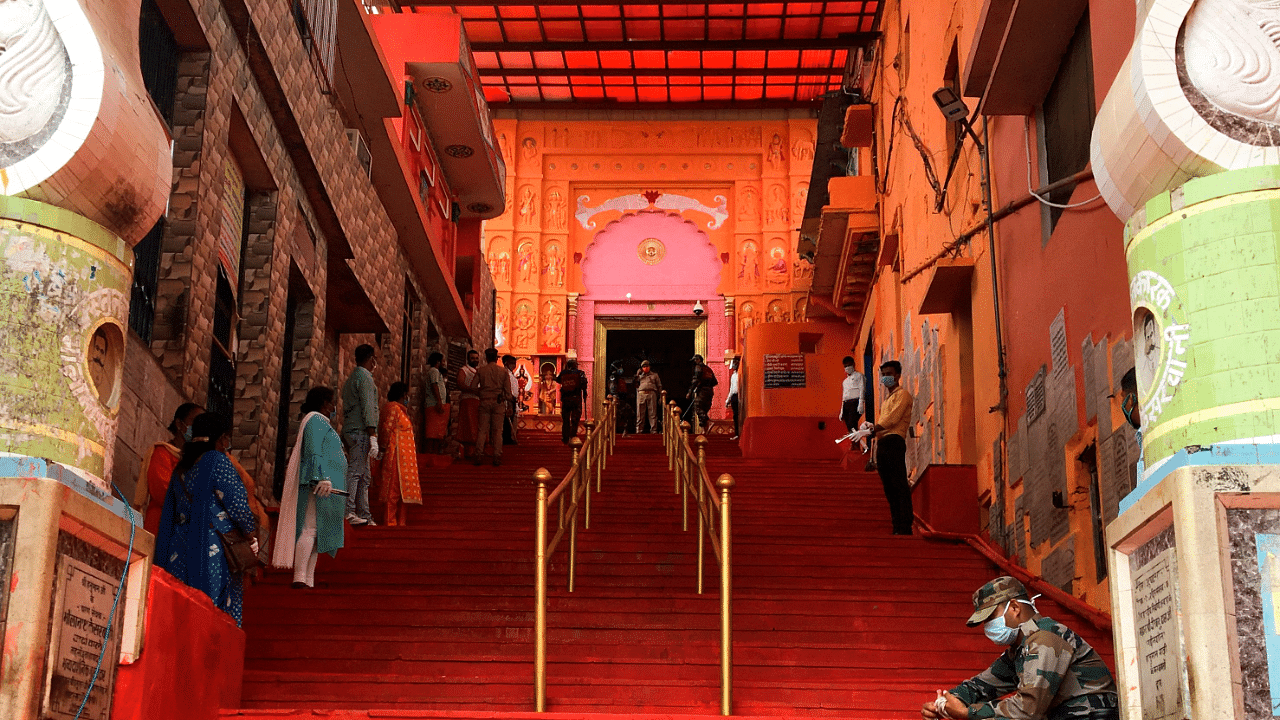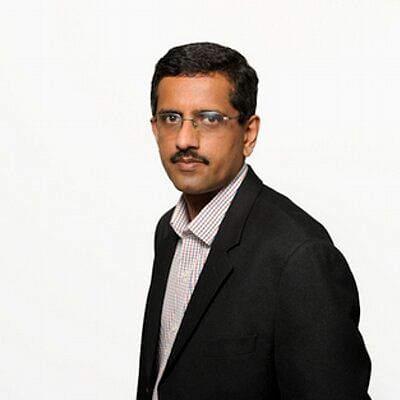
Being at the crossroads implies a period of reflection, a pause during which a nation decides which fork to take, which path to opt for over the other. In the week gone by, India hit a crossroads so briefly it was barely noticeable: There was, after all, always only one road it was going to tread.
Narendra Modi’s speech at the puja and brick-laying for the Ram mandir was a powerful one that hit all the notes you would have expected at an event that has been years in the making. The stage was set, and the consummate politician and speechmaker was never going to fluff his lines.
Six years into his prime ministership, Modi was presiding over his party’s most triumphant hour: Not just the realisation of another manifesto promise but the birth of a moment few devout Hindus, until late last year, thought they would see in their lifetimes.
A lot has been said about how Modi’s speech channelled Ram’s teachings to preach unity and equal treatment for all. It touched every possible constituency: women, the poor, the oppressed, Dalits, Adivasis. It made a point of quoting from the Ramayana of Tamil country, a rare part of the land where the BJP has little sway; why, it even mentioned the word ‘Muslim’, even if it was only to note how a country like Indonesia had a Ramayana tradition of its own.
But the speech was most significant for none of these. It was important because it left no doubt, if there ever was any, about the Sangh Parivar’s vision for India’s future. India is truly on the path towards a Hindu Rashtra, defined by a few for the many initially, but fast becoming a snowball of an idea gathering mass and momentum as it rolls downhill.
The great irony of a speech that extolled Ram’s belief of even-handedness and love for all was that it was most notable for its exclusions. It was a continuation of the BJP’s pretence that there is only group that matters in India, a pretence that seems, depressingly, set to become reality as the years roll on.
It was no accident that Modi drew a parallel between the struggle for independence that culminated with freedom on August 15 in 1947 and the struggle for the Ram mandir that led to the chest-thumping of August 5, 73 years later.
This one comparison should be enough: a struggle that unified India and was fought by Indians of all stripes for a national cause was being equated with a struggle -- however worthy -- of one section of Indians -- however large. Only the very dense -- of the order of Congress men still hoping for a meritocratic succession in their party -- would miss the meaning.
There is some previous to this, as they say. The Citizenship Amendment Act from late last year was remarkable, and made headlines worldwide for the deliberate message of exclusion it sent to Muslims. Twelve months ago, there was the message sent to India’s only Muslim-majority state, Jammu & Kashmir: a move that may have been in the national interest, but done in as draconian a way as possible.
The BJP’s model seems to be Israel, which has been sending these messages to its minorities for years, or at a stretch China, ace encroacher and app-blocked enemy, for its treatment of Uighurs. All this seems intended to leave the Muslim community in a state where it hopes for neglect and nothing more. After all, the elections of 2029 could be fought between a Right-wing party and an ultra Right-wing one. The Congress has been expressing its joy at the construction of the temple, and a government-friendly TV channel recently described archenemy Arvind Kejriwal as a “pragmatic CM and uncompromising politician”.
It would be naive, and missing the point, to bemoan the loss of an opportunity for the BJP to unite the nation. The nation will be united, but it depends on how the BJP defines the nation. If you can take this, it is fine: a united India is a stronger India. After all, bhaya binu hoyee na preethi, the ancient Indian wisdom, echoed less poetically by Theodore Roosevelt, of speaking softly and carrying a big stick.
Just one point, though, for those gloating over how a majority has been restored to its glory and a minority shown its rightful place: You never know when they will come for you. With a small number making all the decisions on what is right and wrong, brooking no questions or opposition, most people are vulnerable to some degree because every community and each of us is a minority in some way or the other. Tomorrow, it could be a ‘national’ language; day after, a dress code; a week later, a mandatory national greeting. Some of these will be harmless but annoying; some will mark the end of traditions held dear by many.
Perhaps (or perhaps not) the pendulum is righting historic wrongs, and the key is in stopping the pendulum at a position of equilibrium. Historically, though, regimes that reengineer peoples’ minds don’t know when to stop: The temptation to keep going will be strong. Will the ancient wisdom of Ram Rajya come to the rescue?
